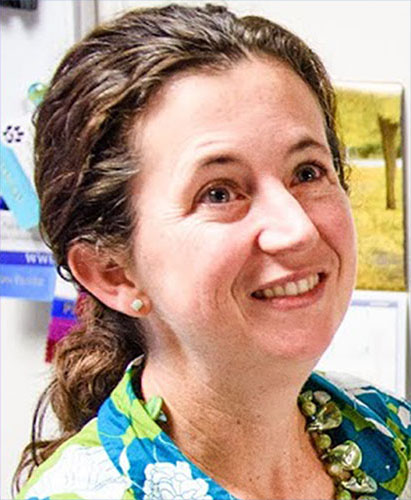Center for Instructional
Innovation and Assessment
INNOVATIVE TEACHING SHOWCASE
2014
2015
Institutional Goals
Listed below are selected learning outcomes in the area of critical thinking that Western Washington University is actively integrating into its curriculum. Each learning outcome is listed with its definition, along with a description of how Amber Sudduth Bone's teaching strategies meet each of these student learning outcome goals.
Critical Thinking
| Learning Outcomes | Definition | Course Outcomes |
| Identification | Accurately identifies and interprets evidence. | As students develop as musicians, they hone their ability to articulate the components of the skills they are working and the processes by which they can most efficiently improve these aspects. They work towards a deep understanding of the melody and words of the literature and to connect freely with these in performance. This requires extensive research into the intentions of the composer and poet, the traditions of the cultures and styles in which each work is situated, and flexibility in exploring a variety of possible interpretations and associations with the student�s own experiences. |
| Alternative Consideration | Considers major alternative points of view. | In literature classes, students look at the psychology of musical creation � how frequency, amplitude, duration, and timbre are used by people to create a language of communication. They examine the viewpoints of composers and artists in different genres, cultures, and social classes and explore the varying ways in which the building blocks of sound can be utilized. Additionally, they explore the biological and neurological bases of musical interactions and how these are shaped by and in turn influence society. In pedagogy classes, they strive to be learner-centered teachers; looking for the unique scaffolding each student needs and working to build that with their peers and in their own teaching. |
| Accurate Conclusions | Draws warranted, judicious, non-fallacious conclusions. | Students attempt to identify the roots of ideas about musicianship; to refrain from superficial judgments about the worth of various kinds of music, instead connecting such ideas to their sources in world history and trends in politics and power. They work to develop multihued performances which conform to the conventions of period and genre and also to illustrate the work at hand with beauty and discernment. They challenge themselves to reach beyond the indications and suggestions implied by the bare notes and text on the printed page to discover what more is possible technically and interpretively through making specific and vivid choices onstage. |
| Justification | Justifies key results and procedures, and explains assumptions and reasons. | Students document their ideas both in verbal discussion and writing, presenting both original research and connections to evidence in assigned readings. |
Source:
Adapted from the California Academic Press's Holistic Critical Thinking Scoring Rubric.
Writing
| Learning Outcomes | Definition | Course Outcomes |
| Rhetorical Knowledge | Focuses on a clear rhetorical purpose and responds appropriately to the needs of varied audiences and situations. | Through interactions with peers and instructors such as collaborative projects or online compilations of material, as well as numerous opportunities for private reflective writing, students clarify their opinions and beliefs about how they learn and practice and the point of what they are trying to convey through performance. |
| Critical Analysis | Develops, examines, situates, and communicates a reasoned perspective clearly to others. | |
| Composing Processes | Understands writing as a recursive process that involves drafting, re-thinking, editing, reconceptualizing. | |
| Convention Knowledge | Uses appropriate conventions for documentation and for surface features such as syntax, grammar, usage, punctuation, and spelling. |
Source:
Adapted from Western Washington University's Learning Outcomes for Writing II.
Information Literacy
| Learning Outcomes | Definition | Course Outcomes |
| Identifying Need | Recognizes and articulates the need for information, identifies potential sources, considers the costs and benefits, and reevaluates the nature and extent of the information need. | Throughout the program, students are primarily polishing their ability to be strategic and self-directed teachers of themselves. They hone this competence through utilizing the opportunities they have to perform, their processing of the feedback they receive, and the subsequent application of their discoveries to new challenges. As more and more of the components of what they do become automated, they are able to perceive more layers and nuances of the music and work on more complex and difficult, yet creatively fulfilling scores. The more they understand, hear, and feel, the more deeply they can communicate with others both within the ensemble and in the audience. |
| Search Strategies | Matches information needs to information resources, organizes an effective search strategy and manages the information and its sources. | |
| Evaluating | Evaluates information and its sources critically and incorporates selected information into his or her knowledge base and value system. | |
| Synthesis | Applies new and prior information to the planning, creation, and revision of the development process, and communicates the product or performance effectively. | |
| Responsibility | Understands many of the economic, legal, and social issues surrounding the use of information and accesses and uses information ethically and legally. |
Source:
Adapted from Western Washington University's Learning Outcomes for Writing II.



